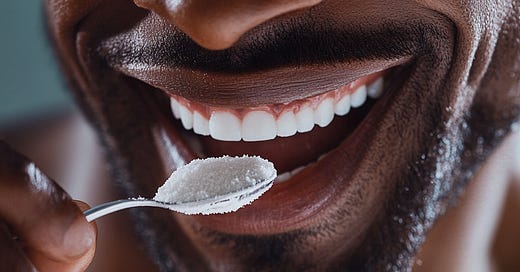This study explores the potential benefits of creatine supplementation for brain health and function.
PMID: 37368234
Creatine, traditionally known for its effects on muscle performance, is gaining attention for its potential cognitive benefits. This review examines the current research on creatine's impact on brain health and function.
Key Points
Brain Creatine Levels: Long-term, high-dose creatine supplementation can increase brain creatine stores.
Cognitive Benefits: Creatine supplementation may improve cognition and memory, especially in older adults and during periods of metabolic stress like sleep deprivation.
Neurological Conditions: Creatine shows promise in improving recovery from traumatic brain injury in children and potentially reducing symptoms of depression and anxiety.
Sex Differences: Some animal studies suggest that cognitive benefits from creatine may be more pronounced in females than in males.
Aim
The study aimed to provide an updated summary of research on creatine and brain health and discuss potential sex- and age-related differences in response to creatine supplementation.
Methods
This is a narrative review that analyses and synthesises existing research on creatine supplementation and its effects on brain health and function.
Results
Creatine plays a crucial role in brain energy metabolism, maintaining intracellular ATP levels during energy-demanding cerebral activities.
High-dose creatine supplementation (≥20 g/day) can increase brain creatine levels over several weeks.
Animal studies show improvements in learning, memory, and spatial cognition with creatine supplementation, particularly in female and aged subjects.
Creatine may help mitigate cognitive decline associated with sleep deprivation.
Related
Practical Takeaways
Consider creatine supplementation for potential cognitive benefits, especially if you're older or experience frequent sleep deprivation.
Aim for higher doses (≥20 g/day) for many weeks to potentially increase brain creatine levels.
Be aware that cognitive benefits may vary between individuals and could be influenced by factors such as age and sex.
Key Takeaways
Creatine supplementation shows promise for improving brain health and cognitive function, extending beyond its well-known effects on muscle performance.
The benefits appear more pronounced in certain populations, such as older adults and those under metabolic stress.
More research is needed to fully understand the sex- and age-related differences in response to creatine supplementation for brain health.
While promising, individuals should consult with healthcare professionals before starting any new supplementation regimen.
Reference
Candow DG, Forbes SC, Ostojic SM, Prokopidis K, Stock MS, Harmon KK, Faulkner P. "Heads Up" for Creatine Supplementation and its Potential Applications for Brain Health and Function. Sports Med. 2023 Dec;53(Suppl 1):49-65. doi: 10.1007/s40279-023-01870-9. Epub 2023 Jun 27. Erratum in: Sports Med. 2024 Jan;54(1):235-236. doi: 10.1007/s40279-023-01888-z. PMID: 37368234; PMCID: PMC10721691.






